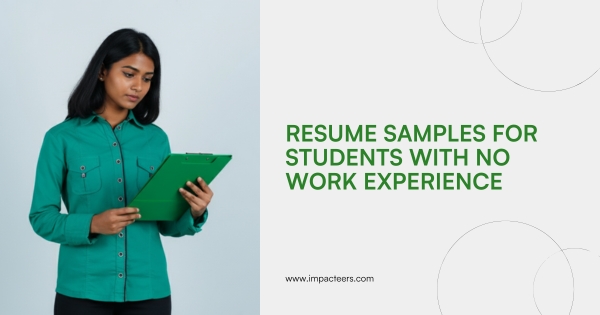How to land your dream job – this is a goal that desires many people, whether it is on global veterans like Google, Microsoft, Apple or Amazon. These companies represent innovation, reputation and endless development opportunities. But it is not easy to play a role in such a competitive environment.
These companies offer great benefits, exciting challenges and the opportunity to work with some of the world’s most new minds. However, finding out how to launch your dream job in these companies!

In this guide, we’ll walk you through the entire process from researching your target company to cracking those tough interviews. With the right strategies, you’ll increase your chances of getting placed in one of these coveted positions in 2024.
Every opening requires more than just good grade or basic experience to stand out with thousands of applicants. You need a well-planned strategy-ATS-friendly starts from re-starting to ACIING interviews and show your unique value. In this guide, we will share actionable tips and experts to help to help navigate the process and finally secure the role you are dreaming about.
Explore more on Impacteers learning path to get a detailed guide on learning, Upskilling, Find Jobs and internships, Choose your Mentor, Build your Resume and coverletter (ATS Free)
How to do your dream job by identifying the right company and role
Before you start planning how to do your dream jobs, the first and most important step is which company and role you want to target. Top MNCs offers a wide range of posts – from software development and marketing to product management, data science, finance, and more.
For example, if you are an aspiring software developer, companies like Google and Microsoft are famous for their state -of -the -art projects in AI and cloud computing. If marketing encourages you, Apple and Coca-Cola are known for innovative campaigns that have global impact. Knowing that align your skills and passion will help you to focus on your efforts and increase the chances of success.
1. Research the Hiring Process of Top MNCs
Different MNCs have distinct recruitment processes. Let’s take a look at some well-known companies and their procedures:
- Google: Known for its rigorous interviews, Google typically has several rounds, including coding challenges (for technical roles), behavioral interviews, and system design interviews.
- Amazon: Amazon emphasizes its leadership principles in interviews. Expect behavioral questions that test whether you align with Amazon’s core values like “Customer Obsession” and “Ownership.” There will also be role-specific technical or problem-solving questions.
- Microsoft: Microsoft’s hiring process includes technical interviews for developers, focusing on data structures, algorithms, and system design, followed by a few behavioral interviews.
- Apple: At Apple, creativity is key. Their interview process is designed to evaluate your ability to innovate and think critically, with technical questions for developers and marketing strategy assessments for business roles.
Make sure to research each company’s interview process thoroughly and tailor your preparation accordingly.
2. How to Land Your Dream Job with a Strong Resume and Cover Letter
In 2025,Think about how to land your dream job, your resume and cover letter is the first impression that you do on recruitors.
For example, instead of saying that “worked on projects,” Write, “developed and launched a new feature, which improved the user’s engagement up to 20%.”

Your cover letter should complement your resume, which should tell a compelling story about your passion for your passion and the company you have brought for the company. Keep it personal for each application to stand out in the competitive job market.
A strong resume and the cover letter does not only help you to consider-they are the foundation of how to do your dream jobs and secure all that important interview. with AI-powered applicant tracking systems (ATS) screening most applications, your resume needs to be tailored and keyword-rich. Here’s how to optimize your application:
- Use Job-Specific Keywords: For example, if applying to Google for a software engineering position, keywords like “algorithms,” “data structures,” “cloud computing,” and “machine learning” should appear in your resume.
- Highlight Quantifiable Achievements: Instead of saying, “Worked on a product development team,” you should say, “Led a team to develop a product that increased sales by 20%.”
- Craft a Tailored Cover Letter: Mention why you’re passionate about that specific company. For instance, if applying to Microsoft, you could talk about how its focus on AI and cloud technologies aligns with your interests.
3. Prepare for Online Assessments and Technical Tests
Many MNCs now start with online assessments to filter candidates before interviews. For example, companies like Google, Microsoft, and Facebook often require applicants to complete coding challenges.
- For Technical Roles: These tests usually include problems related to algorithms, data structures, and system design. To succeed, practice consistently on competitive coding platforms. For example, Google expects you to solve complex problems involving graph theory or dynamic programming.
- For Non-Technical Roles: Companies like Amazon and Apple may conduct online case studies or problem-solving tests that evaluate your approach to real-world business problems.
4. Land your dream job by ace interview process
The interview process at most MNCs typically consists of multiple rounds:
Phone Screen
The first step is usually a phone screen, where the recruiter will ask about your background, experience, and motivations for applying. Prepare to:
- Speak clearly about your past achievements.
- Highlight the key skills that match the job description.
Technical Interviews (If Applicable)
For technical roles, you’ll be asked to solve coding or technical problems on the spot. For example, at Google, you might be asked to write code that solves an algorithm problem in real-time during a Google Meet session.
Pro Tips:
- Practice on whiteboards or coding environments for live coding interviews.
- Use the STAR method (Situation, Task, Action, Result) to structure answers to behavioral questions, such as, “Tell me about a time you worked on a difficult project.”
Behavioral Interviews
Most MNCs, including Amazon, emphasize behavioral interviews. Amazon, for instance, loves to ask questions like, “Tell me about a time when you made a decision that wasn’t popular.”
- Amazon’s leadership principles (e.g., “Ownership,” “Deliver Results”) are central to its hiring process, so ensure your responses reflect these values.
On-Site Interviews (Now Virtual)
In the past, candidates were flown to MNC headquarters for on-site interviews, but in 2024, many of these interviews happen virtually. You’ll often meet with multiple team members in back-to-back sessions that assess both technical and soft skills.
5.Land Your Dream Job by Nailing the Cultural Fit Interview
MNCs like Apple and Google pay close attention to how well you’ll fit into their company culture. This is where your passion for the company and its mission needs to shine.
For instance, Apple looks for employees who can bring creativity and innovation, so when asked about a time you solved a problem creatively, showcase your innovative thinking. At Google, discuss how you approach ambiguity and work in collaborative environments.
6. Follow Up After the Interview
Sending a polite, thoughtful thank-you email after each interview is key. Mention specific details from the conversation and reinforce your enthusiasm for the role.
Example:
“Thank you so much for taking the time to speak with me about the software engineering position at Google. I particularly enjoyed learning about the company’s focus on AI-driven solutions. I’m excited about the opportunity to contribute to such innovative projects.”
7. Accepting the Offer
When you receive an offer, congratulations! But don’t rush negotiate if necessary. Many MNCs offer competitive salaries, but there’s often room for negotiation on perks like stock options, relocation assistance, or signing bonuses. Just make sure to do your research on industry standards before negotiating.
Conclusion
Learning how to land your dream job takes preparation, persistence, and the right strategies. From identifying your ideal company and crafting an ATS-friendly resume to acing interviews and demonstrating cultural fit, every step matters. Remember, securing a position at a top company isn’t just about qualifications—it’s about showcasing your unique skills, aligning with company values, and presenting yourself as the perfect fit.
Stay focused, keep refining your approach, and apply these tips consistently. With the right mindset and strategy, you’ll not only understand how to land your dream job but also make it a reality. Your dream role is within reach—start working toward it today!
Visit Now>>> https://www.impacteers.com/
Register Here>>> https://www.impacteers.com/dashboard
About Us>>> https://www.impacteers.com/about-us
Now, let’s dive into the specific steps to kickstart your journey and get placed at your dream company.
FAQs
1. How many rounds of interviews are typical for big MNCs?
Most MNCs have between 4-6 interview rounds, including phone screens, technical challenges, and behavioral interviews.
2. How do I prepare for technical interviews at companies like Google or Microsoft?
Practice coding problems and focus on algorithms, data structures, and system design.
3. How important is a company’s culture during the hiring process?
Very important! MNCs like Amazon and Apple emphasize cultural fit, and hiring managers look for candidates who align with their values.
4. Can I apply for multiple positions in the same company?
Yes, but it’s better to focus on roles that match your skills. Customize your application for each position.
5. Do I need to follow up after the interview?
Yes! Sending a thank-you email is a great way to show professionalism and reiterate your interest in the position.



Post Comment